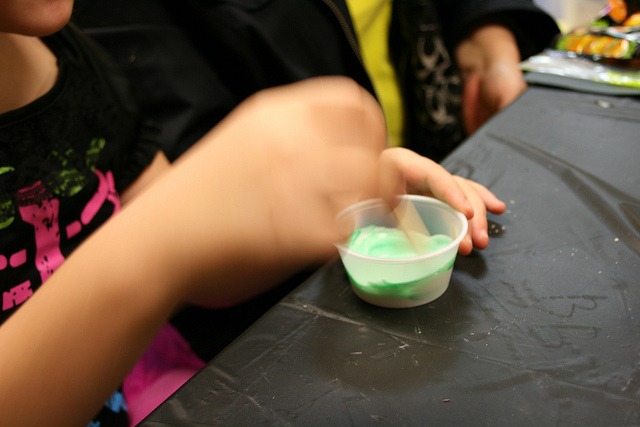Today, we are so excited to welcome a guest post from Corinne who blogs at Alternate Tutelage.
Fun and Simple Ways to Get Kids Excited About Science
Like most kids his age (which is 5), my son’s favorite question happens to be “Why?” As in, “Why do I need to drink milk?” “Why did Matt’s paper airplane fly higher than mine?” “Why is the sky blue?” Sometimes he varies the routine with “How?” As in, “How did Daddy get the kite in the air?” “How did the light bulb come on by itself?” And so on.
I like to encourage his natural curiosity about the world and often use it to teach him science. After all, so much of science is about finding answers to the “whys” and the “hows.” The challenge is to get a bright and inquisitive child excited – as opposed to merely teaching him content – about science and the scientific method.
When in Doubt, Go Online
I often trawl the net for simple do-able ideas that can be used to teach science at home. You’d be surprised by the sheer amount of science activities and games available to help kids learn and review important topics! Most are fun, open-ended and developmentally appropriate learning material that can usually be downloaded for free. Here are some other ways you can get your child interested in figuring out the nuts and bolts of science.
How do Things work?
My little mechanic used to be fascinated by how his radio-controlled toy cars work; now that he’s got them figured, he’s transferred his passion to train and airplane engines. Most kids are fascinated by how things work, and not all of them want to be engineers when they grow up. A great idea to pique their curiosity would be to make a list of everyday items and then discover important scientific principles by doing projects to demonstrate how these inventions work! Can your child grow his own clothing from microbes or make rain in a sandwich bag?
How do Things Sprout and Grow?
Watching things sprout and grow from seeds and eggs is one of the best ways to learn science hands-on. Many plants and animals have interesting and unique life cycles that can be easily observed and recorded in the classroom or lab. How does a chick hatch from an egg? How does a butterfly metamorphose from a caterpillar? How long does it take for a plant to sprout from a tiny seed? Your child can find answers to all these questions simply by observing the development process of different flora and fauna. You can buy a plant kit – a miniature greenhouse that helps plants grow quickly by locking moisture inside – or help him build a terrarium – a sealable glass container that lets in plenty of light and heat to nurture the plants inside.
In Conclusion
Kids are naturally curious. Tap into this and use hands-on activities to keep your kids excited about science. The wonders and marvels of everything around them is definitely worth highlighting. Use different ways to demonstrate this and your little science-lover will have lots to thank you for!
Corinne Jacob is a wannabe writer who is convinced that kids learn best when they’re having fun. She is constantly on the lookout for new and exciting ways to make learning an enjoyable experience. Corinne loves all things that scream out un-schooling, alternative education and holistic learning. Be sure to check out her blog Alternate Tutelage for other fun ways to get your kids excited about learning in non-traditional ways!








Leave a Comment